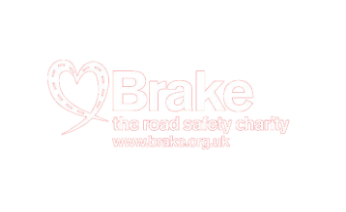There are a considerable number of changes in legislation coming into effect this 2022, including a major addition to the Highway Code all drivers must be aware of
These changes came into play on Saturday 29th January, and drivers who don’t keep up to date with these new driving laws could potentially face heavy penalties as a result
With these adjustments targeting a safer driving environment, it’s safe to say that they will have future impacts on the road. So this knowledge begs the question - what are the major changes in store for motorists this year?
What are the new driving laws for 2022?
Road user priority in the Highway Code
Perhaps the biggest and most serious change coming for road users is an amendment to the hierarchy of road users in the Highway Code. For the first time ever, the law will require those who could cause the greatest harm to others to bear the responsibility of reducing danger.
The government has capitalised on the active travel boom with these new driving laws so that pedestrians, cyclists and horse riders feel safer on the road. The new hierarchy is now as follows:
1. Pedestrians
2. Cyclists
3. Horse riders
4. Motorcyclists
5. Cars/taxis
6. Vans/minibuses
7. Large passenger vehicles/heavy goods vehicles
This hierarchy prioritises at-risk road users whilst improving pedestrian priority (on pavements and when crossing), as well as provides guidance on passing cyclists and horse riders safely.
The government explains that “road users who can do the greatest harm have the greatest responsibility to reduce the danger they may pose to others”.
The Highway Code change is part of a £338 million package to improve the infrastructure for cyclists and pedestrians.
Tougher laws on mobile phone use in vehicles
In 2021, motorists could only be penalised for communicating on their phones behind the wheel - for example, by calling or sending a text. The new rule is set to penalise drivers for touching their phones altogether behind the wheel, whether that be taking photos or videos and scrolling through playlists.
Anyone caught using their hand-held device whilst driving could face a fine of £200 and six points on their license if they’re caught. However, they have stated exceptions in cases where drivers use their phone as a sat nav as long as it’s in a secured mobile phone holder. You can also still use your phone to make contactless payments at toll roads and drive-throughs.

Local councils could enforce minor traffic violations
Currently, local councils are able to send out penalties for parking and driving in bus lanes. But these new driving laws mean that drivers could find themselves £70 out of pocket in new local authority fines, which can be given out to motorists for minor motoring offences.
Before the rule change, the police were responsible for issuing these fines. This is the first time that councils outside of London and Cardiff have the authority to issue penalty charges for these types of offences.
Mandatory speed limiters
To improve road safety, all new cars will be fitted with speed limiters from 6th July 2022.
The speed limiter - known as the Intelligent Speed Assistant system (ISA) will use GPS to work out what the speed limit is and will then ensure the vehicle adheres to the limit by alerting drivers if they’re going too fast. In some cases, if the driver fails to slow their speed, the car will intervene. Drivers can, however, override the speed limiter circumstances when performing an overtake.
No parking on pavements
Scotland has already enacted a bill to outlaw all parking on pavements from 2023 - but the rules may come to England and Wales. While already illegal in London, parking on the pavement is permitted in other areas of the UK, but this could come to change. The new driving laws could mean that councils UK wide could issue £70 fines for pavement parkers.

New homes to have EV charging points
Infrastructure around charging points has been a constant barrier for people considering switching to electric vehicles (EVs). But this year, all new builds in England will have to install EV charging points as a legal requirement. Additionally, they will be installed in new supermarkets and any other building that is having major renovations.
Vehicle Excise Duty increase
Vehicle Excise Duty (VED), often referred to as road tax, is set to rise in line with the retail prices index measure of inflation, most of which occur in April. The government is yet to confirm the new rates, but as per usual, the amount you pay will depend on your new car’s CO2 emissions. And if you’re struggling to figure out how much you’re paying for, the GOV website can help you calculate tax rates for new cars.
Compliance with new driving laws at Reflex Vehicle Hire
At Reflex Vehicle Hire, we pride ourselves on always adhering to new driving laws - whether that be through our innovative range of telematics systems or our Flexiprofiler, we support our drivers in assessment and training, which is why we’re industry-leading and trusted with flexible vehicle hire.
Have we caught your eye? Contact us today, and a member of our friendly team will be happy to assist you with your requirements. We’re committed to supplying commercial vehicles to businesses when they need them most.
Share to:
Find out more
Find out how Reflex Vehicle Hire can help your company.
Call 0330 460 9913 or visit our contact us page.








@2x.png)

